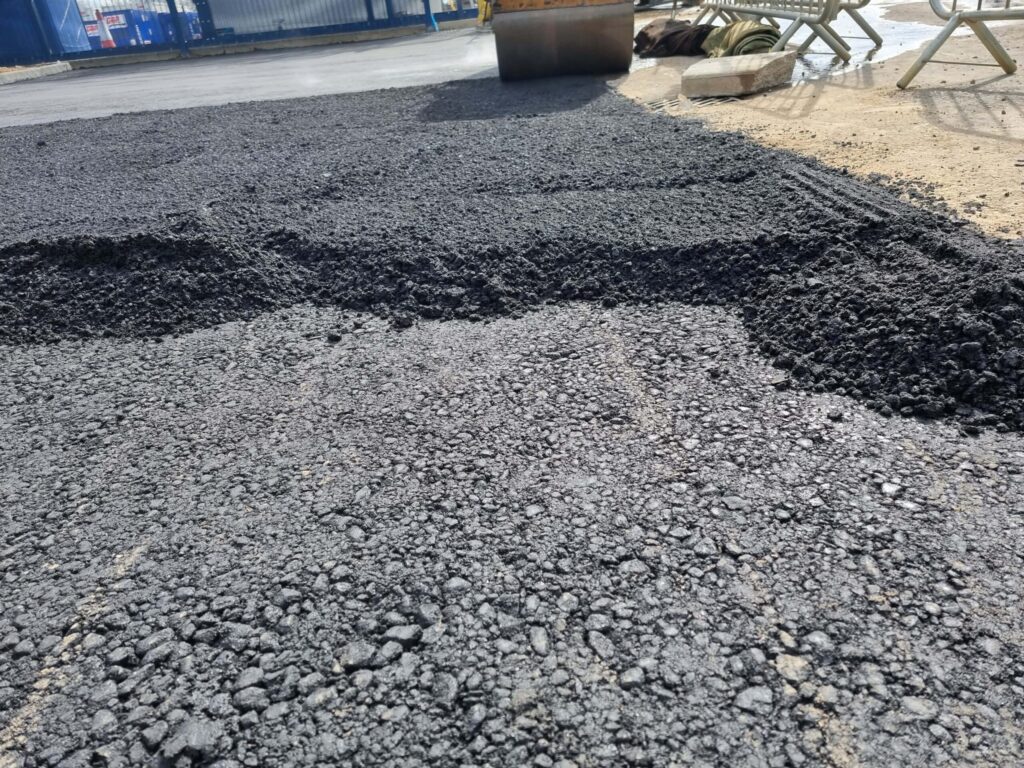Tarmac in Industrial Zones: Supporting Heavy-Duty Transport
Introduction: Industrial zones are the backbone of modern economies, housing factories, warehouses, and logistical hubs that handle heavy-duty transport and machinery. In these environments, the choice of paving material is critical to ensure the efficient movement of goods and vehicles. Tarmac, known as asphalt or blacktop, has proven to be a reliable and cost-effective surface for industrial areas. In this blog post, presented by Norwich Driveway Contractors, we’ll explore how tarmac is crucial in supporting heavy-duty transport within industrial zones.
1. Strength and Durability
One of the primary reasons tarmac is preferred in industrial zones is its remarkable strength and durability. It can withstand the constant weight and wear and tear caused by heavy machinery, forklifts, trucks, and other industrial vehicles. Tarmac surfaces maintain their integrity even under extreme loads, ensuring a smooth and reliable transportation network within the industrial area.
2. Load-Bearing Capacity
Tarmac can be engineered to meet specific load-bearing requirements, making it suitable for industrial zones with varying traffic volumes and vehicle weights. By adjusting the thickness and composition of the tarmac layers, contractors can create a surface that can handle heavy loads without experiencing excessive wear or damage.
3. Smooth Surface
Tarmac provides a smooth and even surface that is essential for industrial operations. It minimises the risk of jolts and vibrations that heavy machinery and transport goods may experience on rough or uneven surfaces. A smooth tarmac surface also enhances the efficiency of forklifts and other material-handling equipment.
4. Rapid Installation
Tarmac can be laid relatively quickly, minimising disruptions to industrial operations during construction or repairs. This fast installation process helps industrial businesses maintain their workflow and minimise downtime.
5. Cost-Effective
Tarmac is a cost-effective choice for industrial zones. Its long-lasting durability reduces the need for frequent repairs and maintenance, ultimately saving on operational costs. Additionally, the speed of installation can result in cost savings during construction.
6. Resistance to Oil and Chemicals
Industrial areas often involve using oils, chemicals, and other substances that can be harsh on paving surfaces. Tarmac is resistant to many chemicals, reducing the risk of surface damage or degradation caused by spills or leaks.
7. Customisation
Tarmac can be customised to include specific markings and designs to facilitate traffic flow and safety within the industrial zone. This allows for efficient organisation and management of heavy-duty transport.
Conclusion: Tarmac is a versatile and reliable paving material vital in supporting heavy-duty transport within industrial zones. Its strength, load-bearing capacity, and durability make it an ideal choice for areas where the movement of goods and machinery is critical to business operations. If you plan to upgrade or maintain the paving in your industrial zone, consider consulting with professionals like Norwich Driveway Contractors, who have the expertise to provide tailored solutions to meet your specific requirements. A well-maintained tarmac surface will contribute to your industrial operations’ overall efficiency and success.
Call us on: 01603 361 697
Click here to find out more about Norwich Driveway Contractors
Click here to complete our contact form and see how we can help with your driveway needs.

